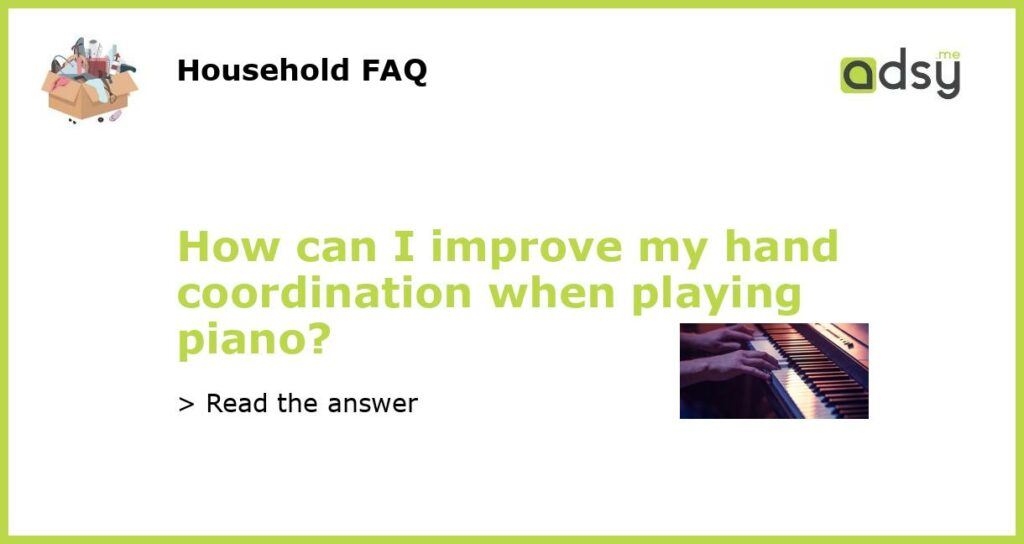Understand the Importance of Hand Coordination in Piano Playing
Hand coordination is a crucial aspect of playing piano. Without it, you’ll be unable to play complex pieces with fluidity and precision. Hand coordination refers to the ability to use both hands together while playing different notes. For example, the right hand may be playing a melody while the left hand plays a harmony or bass line. Improving hand coordination will help you play more difficult pieces with greater ease and make your performances sound more polished.
Practice Finger Exercises Regularly
One way to improve hand coordination is to practice finger exercises regularly. These exercises help to strengthen the muscles in your hands and improve your dexterity and control. Some popular finger exercises include playing scales, arpeggios, and Hanon exercises. Make sure to practice these exercises slowly at first and gradually increase your speed over time. Additionally, focus on keeping your fingers relaxed and avoid tension in your hands.
Use a Metronome When Practicing
Using a metronome when practicing is another effective way to improve hand coordination. A metronome is a tool that helps you keep a steady rhythm by producing a steady sound or click. When playing piano, it can be easy to lose track of the beat or tempo, especially when playing more complex pieces. By using a metronome, you can develop a better sense of timing and rhythm, which will ultimately improve your hand coordination and overall playing ability.
Focus on Hand Independence Exercises
Hand independence exercises are another effective way to improve hand coordination. These exercises involve playing different rhythms or melodies with each hand simultaneously. For example, you might practice playing a simple melody with your right hand while playing a different rhythm with your left hand. These exercises help to improve overall hand independence and can be particularly useful for more complex pieces that require both hands to be playing different notes or rhythms.
Seek Guidance from a Piano Teacher
Finally, don’t underestimate the value of seeking guidance from a piano teacher. A good piano teacher can help you identify areas where you need to improve and provide you with targeted exercises to help you achieve your goals. They can also provide valuable feedback on your playing technique and offer suggestions for improvement. If you’re serious about improving your hand coordination and piano playing ability, consider seeking the guidance of a professional piano teacher.






